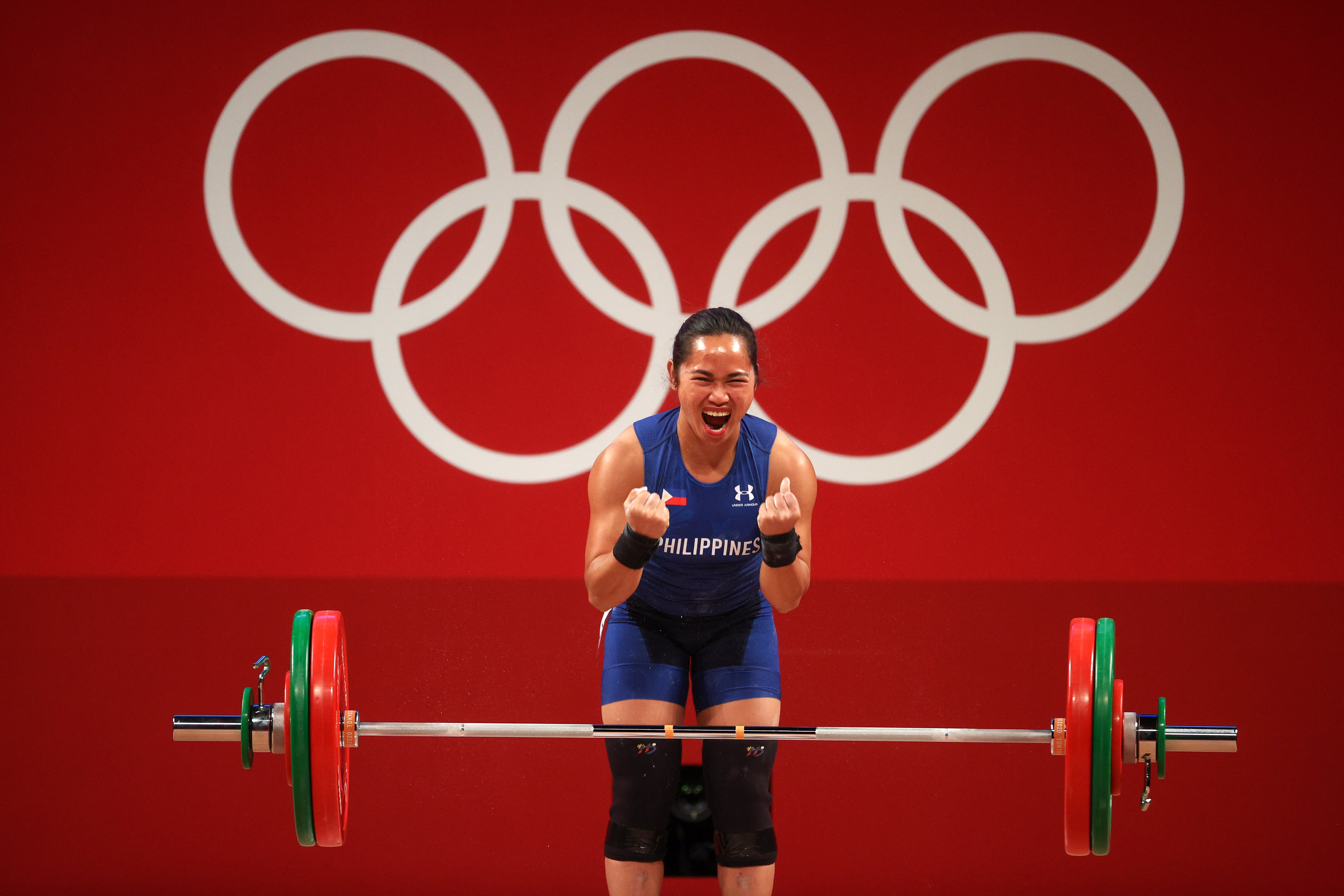Here’s how much Olympic athletes in some countries earn for winning medals

Hidilyn Diaz of Team Philippines competes during the Weightlifting – Women’s 55kg Group A on day three of the 2020 Olympic Games at Tokyo International Forum on July 26, 2021 in Tokyo, Japan.
Chris Graythen | Getty Images
Why some athletes earn more
More than 600 U.S. athletes are competing at the Tokyo Olympics, and the United States has so far won 11 gold, 11 silver and 9 bronze.
The U.S. Olympic and Paralympic Committee rewards athletes $37,500 for every gold medal won, $22,500 for silver and $15,000 for bronze. Most of that prize money is not taxable unless athletes report gross income that exceeds $1 million.
U.S. athletes also receive other forms of support including health insurance, access to top-tier medical facilities and college tuition assistance.
In comparison, Singapore rewards its gold medalists nearly 20 times more than the U.S. Players who clinch their first individual gold medal for the city-state stand to receive 1 million Singapore dollars ($737,000). The prize money is taxable and awardees are required to return a portion of it to their national sports associations for future training and development.
The country sent only 23 athletes to Tokyo.
The sporting economy in the U.S. allows athletes to better monetize their talents as most of it is driven by the private sector, according to Unmish Parthasarathi, founder and executive director at consulting firm Picture Board Partners.
In places like Singapore, India and elsewhere, many of the national sporting initiatives are driven by governments that sometimes use higher monetary rewards to encourage a growing sporting culture, he told CNBC.
Malaysia also has hefty rewards for its Olympic winners.
Athletes who win gold receive 1 million ringgit ($236,149), while silver winners are awarded 300,000 ringgit, and 100,000 ringgit is given to athletes who win bronze. In dollar terms, a Malaysian Olympic bronze winner will receive a higher performance reward than a gold winner from Australia or Canada.
How athletes make money
Beyond receiving monetary and non-monetary rewards from their countries for winning medals, Olympians rely on other revenue streams for their sporting endeavors.
Athletes from bigger, more competitive countries receive stipends or training grants from their national sports associations. Top performers collect prize money by winning national and international tournaments. Others draw regular salary by holding a variety of jobs.
Some, like U.S. badminton player Zhang Beiwen, reportedly relied on crowdsourcing to finance their trip to Tokyo. Most Team USA athletes are not represented by sports agents and some have no sponsors or endorsements at all, according to a Forbes report.
Naomi Osaka of Team Japan serves during her Women’s Singles Third Round match against Marketa Vondrousova of Team Czech Republic on day four of the Tokyo 2020 Olympic Games at Ariake Tennis Park on July 27, 2021 in Tokyo, Japan.
David Ramos | Getty Images
A handful of athletes may score multimillion dollar endorsements or sponsorship deals, either before competing at the Olympics or after achieving success in the Games. For example, tennis star Naomi Osaka reportedly made $55 million from endorsements in 12 months, and was named the highest-paid female athlete ever, according to reports.
But scoring lucrative deals is rare, and hardly the norm.
Parthasarathi pointed out that one profitable career move for some athletes is to go into coaching after retirement as people are willing to pay a premium for former Olympians.
Disclosure: CNBC parent NBCUniversal owns NBC Sports and NBC Olympics. NBC Olympics is the U.S. broadcast rights holder to all Summer and Winter Games through 2032.




